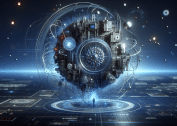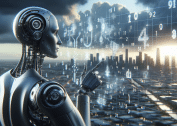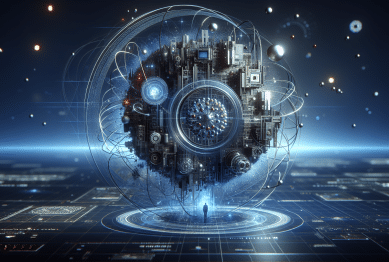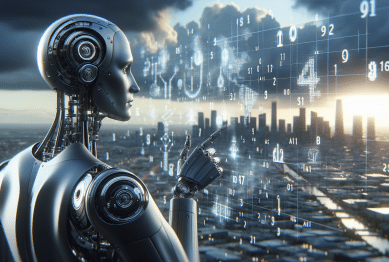Explore how breakthroughs in artificial intelligence are shaping industries, transforming everyday tasks, and sparking curiosity among experts and newcomers alike. This guide sheds light on machine learning, automation, ethical concerns, and opportunities that artificial intelligence creates in the world of tech and science.
The Expanding World of Artificial Intelligence
Artificial intelligence, often referred to as AI, redefines what machines can achieve. Its growth is visible everywhere—from personal gadgets to massive data centers, fueling a new era in tech innovation. AI mimics human decision-making, adapts to new information, and improves over time. Because of this, it’s now central to product recommendations, voice assistants, and even medical diagnostics. Machine learning, a part of AI, learns patterns from huge volumes of data. As more businesses integrate intelligent tools, the demand for skilled professionals continues to rise, making AI one of the most searched and discussed topics in tech and science. Some organizations even utilize deep learning models to unlock new capabilities, showing just how expansive this field has become.
What makes AI universally intriguing is its ability to solve problems that, until recently, were too complex for computers. Algorithms can translate languages in real time, power autonomous vehicles, and analyze medical images with astonishing accuracy. These breakthroughs come from years of research in neural networks, which have finally bridged the gap between theory and practical solutions. For anyone interested in the future, understanding artificial intelligence unlocks pathways to both cutting-edge careers and innovations. Its influence is growing across smart devices and connected networks that most people use daily. AI’s predictive capabilities allow businesses to make data-driven decisions, steering industries in new directions and giving rise to fields like natural language processing and computer vision.
Recent growth in AI is accelerated by access to larger datasets and stronger computational power. Open-source tools and platforms make developing machine learning applications easier than ever before, resulting in a wider adoption across education, finance, and healthcare sectors. While excitement about AI continues to build, experts also stress the importance of responsible implementation, as society balances the promise of automation with ethical responsibilities. Engaging with these topics, readers encounter concepts like supervised learning, algorithmic transparency, and automated decision systems, all key pillars in modern artificial intelligence discussions. Curiosity remains high as new real-world applications emerge almost daily, pushing boundaries further than once thought possible.
Machine Learning Powers Intelligent Systems
Machine learning, a key subset of AI, allows computer systems to learn from data and adapt without explicit programming. Everyday devices, from smartphone cameras to online shopping sites, utilize machine learning models for features like facial recognition or personalized recommendations. These algorithms identify hidden relationships in data that humans might overlook, helping automate processes and improve user experiences. For those curious about technological progress, machine learning provides foundational tools that continue to make headlines across tech platforms and scientific publications worldwide.
Supervised machine learning uses labeled data to train algorithms that can classify information, predict outcomes, or find anomalies in finance, healthcare, and logistics. Unsupervised learning discovers natural groupings or structures in massive datasets, which is particularly valuable in genetic research or digital marketing segmentation. Reinforcement learning, another branch, enables systems to optimize actions through trial and error, like teaching robots to navigate real-world environments. Each approach unlocks new possibilities and prompts further research into creating smarter, safer, and more efficient solutions using artificial intelligence.
Complex challenges, such as voice recognition or real-time translation, highlight the power of machine learning. Intelligent chatbots now assist with customer service, and advanced analytics help organizations anticipate market shifts. The constant development of new machine learning frameworks and the integration of AI in software make these intelligent systems more accessible to developers and end-users alike. As use cases expand, there’s wide interest in learning the fundamentals of these technologies, from building neural networks to ensuring fairness in automated decision-making. That’s why public and private organizations are investing in educational resources and open-source AI projects.
Automation Transforms Industries and Daily Life
Automation, driven by rapidly advancing AI, is revolutionizing traditional workspaces and everyday life. Factories, warehouses, and distribution centers increasingly rely on robotics powered by intelligent algorithms to manage supply chains efficiently. Automated systems perform repetitive tasks with accuracy, reducing manual labor and freeing up human talent for creative or strategic roles. These changes prompt new discussions about how society can adapt to evolving job markets and leverage automation’s benefits responsibly. Automation is equally present in homes—smart thermostats, lighting systems, and kitchen appliances all utilize artificial intelligence to optimize energy use and support convenience in daily routines.
Healthcare, transportation, and agriculture also experience radical transformation through intelligent automation. Self-driving vehicles show how embedded machine learning reshapes transportation, offering the potential to reduce accidents and improve safety. In healthcare, AI assists with patient scheduling, streamlines diagnostics, and supports personalized treatment plans by analyzing vast datasets. The agricultural sector uses automated drones and sensor-based irrigation systems to increase crop yields and conserve resources, demonstrating how artificial intelligence can address both efficiency and sustainability. These innovations inspire curiosity about the evolving role of technology in everyday lives.
While automation’s benefits are clear, new challenges emerge in managing large-scale transitions. Workers need reskilling opportunities to thrive in AI-powered environments, and organizations invest in digital literacy and upskilling initiatives. Automation raises important questions about data privacy, security, and the ethical use of artificial intelligence, especially as more personal data is collected by smart devices. Governments and researchers emphasize the development of transparent algorithms and robust regulations, ensuring the transformative power of automation benefits society as a whole. These themes encourage thoughtful debate and sustained interest from diverse audiences exploring the impact of artificial intelligence.
Ethical Concerns and Responsible AI
Ethical considerations play a pivotal role in artificial intelligence development. Responsible AI demands transparent algorithms, unbiased datasets, and the protection of individual privacy. Developers are tasked with creating models that avoid reinforcing social inequalities, as biased data can lead to unintended consequences. This is especially important for applications such as hiring tools or predictive policing systems, where algorithmic decisions can significantly impact lives. By fostering open debate and collaboration between experts, society can harness the power of artificial intelligence while minimizing risks.
AI’s expanding influence makes it vital for researchers, policymakers, and companies to establish clear guidelines for implementation. Institutions like the Institute for Ethical AI and Machine Learning produce frameworks to ensure fairness and transparency, while international organizations propose regulations promoting safe and equitable artificial intelligence adoption. Ethical AI also focuses on interpretability—understanding why an algorithm made a certain choice—to increase public trust and accountability in intelligent systems. The shift toward explainable AI is central in sensitive fields such as healthcare or criminal justice, highlighting the need for continuous oversight and dialogue.
Continued debate about ethical priorities pushes the boundaries of research and application in AI. Topics like data ownership, surveillance, and consent become central to policy-making. Major tech companies and research institutions regularly review their practices, publishing reports and engaging in community outreach to address public concerns about automation, job displacement, and digital privacy. Responsible AI isn’t just about compliance; it reflects a commitment to innovation that respects fundamental rights and encourages broad participation in the benefits of technological change.
Opportunities in Artificial Intelligence Careers and Education
The growing demand for artificial intelligence expertise creates abundant opportunities in technology, research, and business. Companies look for professionals skilled in machine learning, data analysis, and software engineering to design and deploy intelligent solutions. Educational platforms and research organizations respond by offering specialized programs and online courses, making the skills needed for AI accessible to more learners. For those entering the tech field or considering a career shift, AI-focused roles promise exciting challenges and paths for advancement as industries integrate automation and data-driven strategies.
AI education is no longer limited to university campuses. Open online courses, coding bootcamps, and industry certifications provide flexible options for lifelong learners. Initiatives like AI for Everyone and global MOOCs support a diverse group of students and professionals, bridging knowledge gaps and encouraging innovation. Many resources—ranging from structured curricula to hands-on AI labs—help prepare individuals for jobs in robotics, predictive analytics, and AI ethics consulting. Public-private partnerships further expand these efforts, creating training programs that align with emerging workforce needs.
The field of artificial intelligence is expected to grow rapidly as more sectors embrace digital transformation. Many organizations invest in continuous learning for their teams, recognizing the importance of adaptive skills in changing environments. Participation in AI communities and hackathons fuels creative problem-solving and strengthens professional networks. By engaging with responsible AI principles and technical training, professionals can contribute to the ethical development and application of intelligent systems, ensuring that AI’s benefits reach all parts of society.
The Road Ahead for Artificial Intelligence
The journey of artificial intelligence is continuously evolving. Advances in deep learning, quantum computing, and neuromorphic engineering hint at a future where intelligent machines collaborate with humans in unprecedented ways. Research initiatives push the limits of what machines can achieve, fostering new discoveries in personalized medicine, sustainable manufacturing, and climate modeling. As curiosity about AI’s potential grows, researchers encourage dialogue between stakeholders to ensure innovations align with societal goals and ethical standards.
Society’s relationship with AI depends on access, understanding, and trust. Educators, technologists, and governments work together to build digital literacy and promote AI fluency for everyone. Transparency in AI models and ongoing discussion about the implications of automation foster public understanding and informed adoption. Exploring stories of successful AI deployment and lessons from past challenges supports better integration in diverse fields, from urban planning to creative industries.
Artificial intelligence continues to surprise with new applications and creative uses. Everyday people benefit from smarter devices, improved healthcare diagnostics, and more efficient resource management. By engaging in the evolving conversation about AI’s impact, readers take part in shaping the next chapter of technological advancement. This journey, guided by curiosity and responsibility, paves the way for a more connected, innovative, and equitable future powered by intelligent machines.
References
1. European Commission. (n.d.). Ethics guidelines for trustworthy AI. Retrieved from https://digital-strategy.ec.europa.eu/en/policies/european-approach-artificial-intelligence
2. U.S. Department of Energy. (2021). Artificial intelligence and machine learning. Retrieved from https://www.energy.gov/science-innovation/artificial-intelligence-and-machine-learning
3. Stanford University. (n.d.). Artificial intelligence index report. Retrieved from https://aiindex.stanford.edu/report/
4. Institute for Ethical AI & Machine Learning. (n.d.). Foundational principles. Retrieved from https://ethical.institute/principles.html
5. World Economic Forum. (n.d.). Shaping the future of technology governance: Artificial intelligence and machine learning. Retrieved from https://www.weforum.org/platforms/shaping-the-future-of-technology-governance-artificial-intelligence-and-machine-learning
6. IBM. (n.d.). What is automation? Retrieved from https://www.ibm.com/cloud/learn/automation









